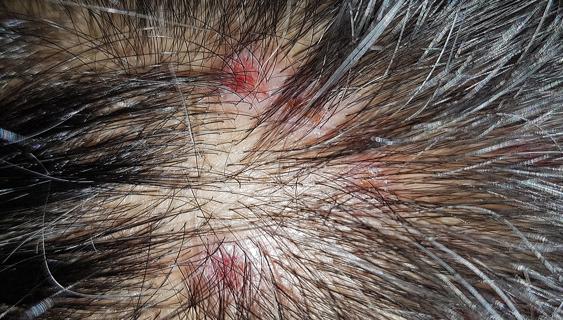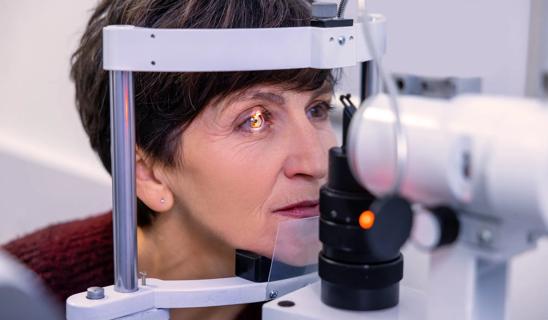Eyelash Loss Causes and Solutions: When to Worry About Falling Eyelashes
We all want beautiful, healthy eyelashes. They frame our eyes and protect them from dust and debris. That's why it can be concerning when you notice more eyelashes falling out than usual. But how much eyelash loss is normal, and when should you worry?
Understanding Normal Eyelash Shedding
Losing a few eyelashes daily is perfectly normal. According to the American Academy of Ophthalmology, losing 1 to 5 eyelashes per day is average.
- Growth Cycle: Like all hairs, eyelashes go through growth, transition, and resting phases before falling out.
- Occasional Loss: Finding a lash or two on your face or pillow is usually not a cause for alarm.
When Eyelash Loss Becomes a Concern: Recognizing Ciliary Madarosis
If your eyelashes are thinning noticeably or falling out in clumps, you may be experiencing rapid eyelash loss, also known as ciliary madarosis. This isn't a disease itself, but rather a sign that something is affecting your eyelash growth cycle.
Top Reasons for Excessive Eyelash Loss
So, why are your eyelashes falling out more than usual? Here are some potential culprits:
1. Blepharitis: Eyelid Inflammation and Lash Loss
Blepharitis, or inflammation of the eyelid, is a common condition that can lead to eyelash loss.
- Underlying Skin Conditions: Rosacea, seborrheic dermatitis, and demodex infestation can cause blepharitis.
- Inflammation Impact: Inflammation affects the eyelash follicles, causing lashes to fall out.
- Treatment: Manage symptoms with lid scrubs and warm compresses, or seek professional help from an ophthalmologist or dermatologist.
2. Systemic Health Conditions and Their Impact on Eyelash Growth
Overall health issues can also contribute to eyelash loss. Your body prioritizes essential functions. If it's fighting an illness, eyelash growth may suffer. Some of these conditions include:
- Autoimmune diseases.
- Thyroid disorders.
- Alopecia areata.
3. Irritation and Trauma from Eyelash Products
Lash lifts, tints, and extensions can sometimes do more harm than good. The chemicals and weight can damage your delicate eyelash follicles.
- Traction Alopecia: The weight of fake eyelashes can pull on natural lashes, causing hair loss.
- Allergic Reactions: Chemicals in lash lift procedures and eyelash glue can trigger allergic reactions.
- Recommendation: Choose reputable salons, get patch tests, and give your lashes breaks.
4. Medications That Can Cause Eyelash Shedding
Certain medications, such as blood thinners and some antidepressants, can have eyelash loss as a side effect. Chemotherapy and radiation therapy can also thin out lashes. Consult your doctor if you suspect your medication is causing eyelash loss. Eyelashes usually grow back after treatment is complete.
5. Vitamin Deficiencies and Eyelash Health
Deficiencies in biotin, zinc, and iron have been linked to lash growth. However, don't self-prescribe high doses of supplements, discuss with your doctor first.
How to Stop Eyelash Shedding: Practical Tips and Solutions
Ready to take action and promote healthy lash growth? Follow these steps:
- Address Underlying Health Issues: Manage any health problems that could be contributing to eyelash loss by seeing your doctor regularly.
- Go Easy on Curlers: Eyelash curlers can bend and break your lashes. Use them sparingly and avoid heated curlers.
- Remove Mascara Gently: Always remove eye makeup before bed using a gentle, fragrance-free remover or micellar water.
- Sleep on Silk or Satin: Reduce friction and breakage by sleeping on a silk or satin pillowcase. You can also use a silk eye mask for extra protection.
Medications for Eyelash Growth: Understanding Bimatoprost (Latisse®)
Bimatoprost (Latisse®) can help lashes grow longer by extending the eyelash growth cycle. However, it does not make lashes thicker. It also has potential side effects like dry eye and darkening of the iris.
Before considering Latisse, consult with your doctor to discuss the risks and benefits.
When to See a Doctor About Eyelash Loss: Seeking Professional Help
Losing eyelashes can be concerning, but many causes are treatable. If you notice thinner lashes, consult your doctor to determine the root cause and get your lashes growing again. Don't hesitate to seek professional help.










